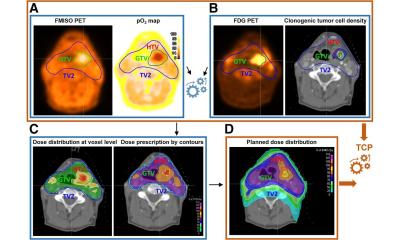„OMICS“ – new buzzword for health policy
“The current shift of healthcare towards a systemic and holistic understanding of the causes of diseases is a true scientific revolution,“ Prof. Dr. Angela Brand said today at the European Health Forum Gastein (EHFG). Prof. Brand, Director of the European Centre for Public Health Genomics hosted at Maastricht University, added that the “next-generation sequencing technologies are opening the door for a broad application of the understanding of modern genomics and will lead to a decisive paradigm change in health systems.”


Since a human DNA with its six billion nucleotides and genetic building blocks was completely decoded for the first time in 2000, the field of genomics has made continuous progress. The concepts of personalised medicine and personalised healthcare are moving with increasing speed from an idea into reality. Based on the exact knowledge of the genetic disposition of each person and of the composition of his or her genotype, proponents of genomics are hoping they will be able to design tailor-made prevention strategies, early detection and diseases treatments. As the director of the Genetic Alliance UK, Alistair Kent, put it, “The hope of patients with personalised medicine is the positive contribution it can make to the diagnosis and treatment of common complex diseases. Innovative therapies will be possible, health problems can be targeted more efficiently and effectively with less side effects.
Environmental influences on the genome - new understanding for disease origins facilitates individual prevention and therapy
Not only is genetic disposition being ever more precisely examined. The very interaction between hereditary disposition and environmental influences is also being put under the microscope. “The diseases of this century are complex diseases which stem mainly from the interaction of the human genome with life style and environmental factors,” said Prof. Dr. B. Serdar Savas, head of the GENAR Institute for Public Health and Genomic Research in Istanbul.
Prof. Brand is also pleading for a holistic understanding of individual pathways: “Genomics cannot completely predict an individual’s phenotype. A comprehensive model of future health care will take into account integrative genomics alongside with environmental, social and life style factors. This will become essential in order to enable a new approach towards personalized strategies in the prevention, early detection and treatment of disease.” The rapidly growing field of epigenomics is contributing to the understanding of genome-environmental interactions, suggesting mechanisms that measure how environmental factors such as stress, nutrients, toxic agents or a virus can influence gene expression.
Particularly great hopes are being placed in the potential for personalised medicine in cancer therapy through modern blood tests that can unearth the genetic “fingerprint” of a cancer and make the effects of therapy evaluable.
Public health policy required: balance between societal benefit and protection of the individual
Experts at the European Health Forum Gastein are stressing, however, that the new possibilities for personalised medicine should be a matter for public health policy and not simply for innovative medical research alone. According to Prof. Brand, “there is a need to come up with a clear and timely strategy for assessing and translating genome-based knowledge and technologies into policies and health services. Policymakers must be aware of the opportunity to monitor the implications of genome-based knowledge and technologies for health, social and environmental policy goals and to assure that these advances will be tailored not only to treat medical conditions but also to prevent disease and improve public health.”
“Public Health Genomics” is the new buzzword here for health policy. Dr. Savas notes that “Genome- based information has a very important potential to improve human health, quality of life and performance and extend life span. Public Health Genomics focuses on translating the genomic discoveries into individual and public health interventions.”
A mood in the debate among experts at Gastein is that personalised medicine and healthcare call for appropriate governance strategies since they challenge the way in which healthcare systems are set up. According to specialists, this includes the creation of regulatory frameworks. A delicate balance must be found between providing strong protection of individual interests and simultaneously enabling society to get access and benefit from the genomic innovations.
As explained by Alistair Kent, “personalised medicine is not just a question of health but also an economic and regulatory one. We will need a new regulatory framework for licensing that will take into account the individualised approach rather than being based on indications. We will need new reimbursement rules for those individualised therapies. And we will need incentives for the pharmaceutical industry in order to also encourage the development of these new therapies for small subsets of patients.”
08.10.2010





